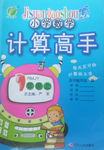题目内容
A museum was built ______ those who lost their own lives for others.
- A.in praise of
- B.in search of
- C.in honor of
- D.in favor of
C
试题分析:考查介词短语辨析。A表扬;B寻找;C纪念;D支持;句意:为了纪念那些为了别人失去生命的人,一座纪念馆被建设了起来。故C正确。
考点:考查介词短语辨析
点评:介词的考查重在积累。解题技巧: 1)明确词意 所选答案要符合句子意思;2)归纳比较平时要特别重视收集归纳比较同义词、近义词和相似词的异同,牢记它们的用法。
试题分析:考查介词短语辨析。A表扬;B寻找;C纪念;D支持;句意:为了纪念那些为了别人失去生命的人,一座纪念馆被建设了起来。故C正确。
考点:考查介词短语辨析
点评:介词的考查重在积累。解题技巧: 1)明确词意 所选答案要符合句子意思;2)归纳比较平时要特别重视收集归纳比较同义词、近义词和相似词的异同,牢记它们的用法。

练习册系列答案
 智能训练练测考系列答案
智能训练练测考系列答案 计算高手系列答案
计算高手系列答案
相关题目
| 完形填空。 | ||||
| The morning in London was wet, wet, wet. I had to check out from the 1 before noon, and then I would have a few 2 before my conference started near Richmond Park in the 3 . I started early for a literary London 4 with just my two feet, a guidebook and a map and a backpack with purse, camera and 5 . My hotel was in Bayswater, and by walking through Kensington Gardens, 6 by the Peter Pan statue, I soon 7 myself in Kensington, former home of many a great 8 . The more I 9 into literature, the more I want to learn, the more I see 10 I don't know, what I haven't 11 . Like Peter Pan. Familiar title, but a book I have never read. Among my classic favorites are several books 12 Henry James. Some years ago I had some time alone in Roma and I spent a morning 13 for James' home there, which is now a museum. My walk 14 . Turning a corner right here, passing a square, looking up to see signs with familiar names, T.S. Elliot, W.M. Thackeray, Ezra Pond… Stopping for a 15 at a small French cafe, trying to 16 my wet and cold feet, writing my diary, then out again. I 17 in paradise (天堂) river, surrounded by images of words and famous writers. Have you ever tried a literary walk? It is a great way of 18 . You not only see a city or a place like it is today, you can keep on 19 you are back home, reading the books by the authors, imagining their 20 , their places, knowing a tiny little bit more about the man or woman behind the creating hands and mind. | ||||
|